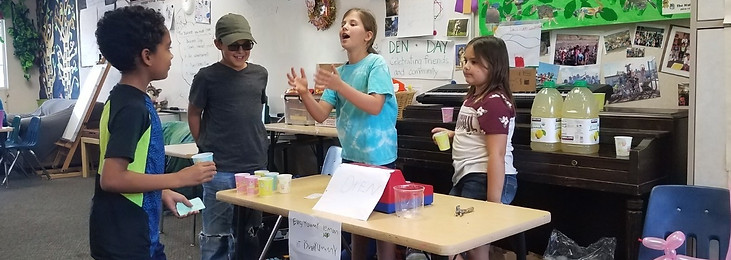

Voice
I can communicate what I want to learn. I can work with others to work in a community and enlist mentors to further my learning goals.
Give Students the Opportunity to Speak
Structure parent meetings, student conferences, and planning or organizational discussions so that students always speak first. Encourage students to begin with their ideas while adults listen attentively in order to encourage and practice student voice.
Give Students Different Methods to Share Ideas
Some students thrive in rapid, verbal discussions. Others need more time to ponder and different methods to describe their ideas. Try different methods of communication and contemplate which work best for your student(s): writing, drawing, journaling, speaking, hand signals, art, surveys, making choices between two options rather than many.
Asking Questions, Contemplating Answers
Voice and communication is vital for students' agency. The ability to use voice effectively is age-dependent, and also different for each learner. Create forums for questioning, discussion, contemplation. This can be done in simple conversation, in class councils, in journals, in freeze-and-think moments.
-
What do you want to communicate? Did they understand? How do you know that?
-
What is your friend/sibling/partner/classmate trying to communicate? How do you know that?
-
Was your group learning effective? How do you know that?
-
Who can be your mentor? How will you communicate your interest to that person?

